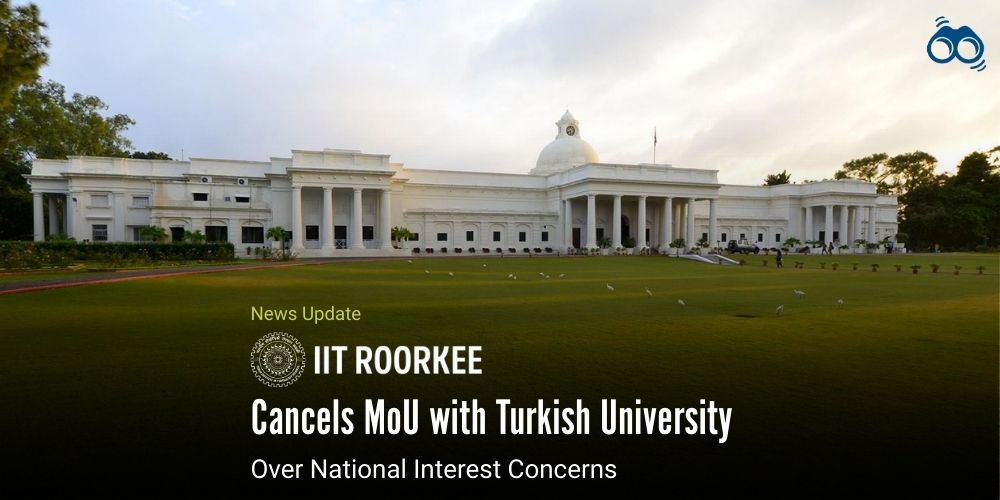National Interest First: Indian Universities Rethink International Collaborations
IIT Roorkee Cancels MoU with Inonu University as India Reassesses Global Partnerships
Indian Institute of Technology Roorkee (IIT Roorkee) has officially withdrawn from its academic collaboration with Inonu University in Turkey, joining several other Indian universities in taking similar action. On 16 May, the institute announced the cancellation of its Memorandum of Understanding (MoU), emphasising that all international partnerships must align with India’s national interest.
Originally, the MoU had been established to foster research collaboration and facilitate faculty-student exchanges; however, amid growing concerns regarding Turkey’s geopolitical stance, IIT Roorkee opted to terminate the agreement. This decision reflects a broader trend among Indian academic institutions that are reassessing their global partnerships in response to shifting international dynamics. Furthermore, IIT Roorkee clarified that national interest was the key factor behind the cancellation, yet reaffirmed its commitment to global research collaborations. In its statement, the institute underlined that while it remains open to international academic engagements, future partnerships must align with India’s research and innovation objectives.
Significantly, IIT Roorkee’s move is not an isolated case, as it follows similar actions taken by other prominent Indian universities. Earlier in the same week, Jawaharlal Nehru University (JNU) and Jamia Millia Islamia reportedly cancelled their respective MoUs with Turkish institutions. Notably, the trend has also extended beyond central universities, with private institutions following suit. Lovely Professional University (LPU) is said to have terminated six MoUs with institutions in Turkey and Azerbaijan, citing recent global developments deemed contrary to India’s interests.
Previously, JNU had suspended its agreement with Inonu University, which was initially intended to run for three years and focus on cultural research and student exchanges. Shortly afterwards, Jamia reportedly severed all academic ties linked to the Turkish government. These developments highlight a broader shift among Indian higher education institutions, underscoring a firm commitment to prioritising national interest in shaping international collaborations. As Indian universities continue to navigate their global partnerships, alignment with national priorities remains a guiding principle in academic decision-making.
Editor’s Note:
The decision by IIT Roorkee to withdraw from its collaboration with Inonu University in Turkey underscores the growing emphasis on aligning academic partnerships with national priorities. While research and academic exchange serve as crucial pillars of global cooperation, institutions are increasingly reassessing their engagements in light of geopolitical shifts. IIT Roorkee’s move, along with similar actions by other leading Indian universities, highlights the evolving stance on international collaborations, reinforcing the need for academic alliances to reflect national interests. Given the broader trend among Indian institutions, this decision appears to be a strategic and necessary step. While fostering global research is valuable, collaborations must support the country’s academic and innovation objectives without compromising national priorities.
Skoobuzz believes that as universities continue to navigate international partnerships, ensuring alignment with India’s long-term vision remains essential for meaningful and sustainable academic growth.














0 Comments (Please Login To Continue)